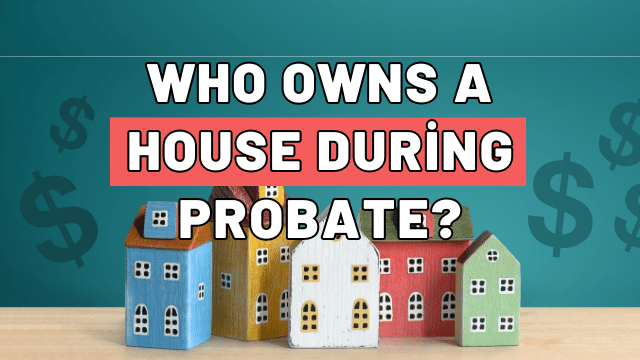Navigating house ownership within the probate process can be a complex endeavor. Understanding the intricacies of this process is crucial, as the rights and responsibilities tied to property ownership vary based on several factors, often dictated by state or provincial regulations. While the deceased’s will outlines the rightful heirs, conflicts may arise with other estate laws. Resolving such conflicts falls under probate law, which plays a pivotal role in determining the legal titleholders of assets, particularly real estate, and making decisions about inheritance during estate probate.
In many states, adherence to statutes governing bond issues for executors, appointment of guardians for minor children, submission of mandatory court documents, and preparation of appraisals for the decedent’s valuable possessions are integral components of the probate process. Properties entangled in disputes necessitate additional paperwork before distribution among heirs or other forms of disposition. Seeking counsel from experienced attorneys, representing all parties involved in settlement proceedings, is invaluable. This is especially true when dealing with unforeseen complexities that may arise due to a lack of prior knowledge about the stipulations in the legal documents.
What is the Probate Process for Inherited Property?
Understanding the Probate Process for Inherited Property
Owning a house during probate entails navigating various legal and financial considerations. The distribution of assets among heirs or entities involved in an inheritance dispute is subject to the specific circumstances of the estate, governed by applicable laws. In addition to potential transfer fees, there may be taxes and legal costs borne either by the property itself or its beneficiaries. For individuals who have recently inherited a house through probate proceedings, seeking professional guidance from reputable real estate specialists is crucial. This ensures informed decision-making about the next steps to take regarding their newfound asset.
What are the Legal Requirements for Inheriting a Property?
Understanding the Legal Requirements for Inheriting a Property
Inheriting a property involves more than being named in a will. Depending on your jurisdiction, specific legal prerequisites must be met to establish eligibility for inheritance. This encompasses ensuring proper notification to all involved parties, providing adequate proof of death and the relationship between you as the heir or beneficiary and the deceased party(ies). Moreover, settling any outstanding taxes or liens is crucial before transferring ownership into your name to prevent potential delays in the process. In certain instances, it may necessitate probate court proceedings, involving extensive paperwork from both legal representatives and executors. While inheriting a home can be rewarding, individuals contemplating this should always familiarize themselves with local laws to preempt any costly delays in the process.
How to Transfer Ownership of an Inherited Property?
Navigating the Transfer of Ownership for an Inherited Property
The process of transferring ownership of an inherited property can be intricate. To ensure a seamless transfer, it is crucial to grasp your state and local laws, particularly in relation to inheritance tax matters, applicable taxes, fees, and requirements, such as obtaining probate court approval and following deed filing procedures. Seeking guidance from a seasoned estate lawyer well-versed in these intricacies is also imperative. Prior to altering the title of the deceased’s assets, careful consideration should be given to potential capital gains taxes that might be triggered by the change; avoiding such taxes may help mitigate losses stemming from financial appreciation over time. Moreover, if there are multiple beneficiaries involved in inheriting the property, obtaining unanimous consent for relinquishing rights can add complexity, as everyone’s agreement is required before proceeding with changes in ownership structure. Lastly, securing insurance coverage for the new asset is paramount. Proactively taking these measures will minimize potential legal complications in the future, ensuring a smooth transition from the former owner’s name to yours.
What are the Tax Implications of Inheriting a Property?
Inheriting a property opens the door to various financial opportunities, yet it also entails a range of tax implications. Broadly speaking, inheriting real estate is typically not classified as taxable income, and the inheritance itself may be exempt from state taxes in select jurisdictions. However, any profits derived from selling an inherited property are subject to capital gains taxes if the asset is sold within six years of receiving the inheritance. This holds true even when selling to family members or friends at a price below the market value. Beyond these considerations, additional federal and local taxes may be linked to the transfer of ownership of a home acquired through inheritance. For individuals contemplating the acquisition or disposition of such assets within their estates, seeking professional advice is paramount. This ensures a comprehensive understanding of all applicable tax laws that could impact them financially, both in the present and for future generations.
What are the Options for Selling an Inherited Property?
Exploring Your Choices for Selling an Inherited Property
Navigating the sale of an inherited property demands careful consideration, as it involves a multifaceted process. To identify the most suitable option for your circumstances, it’s crucial to weigh factors like taxes, investment potential, and prevailing market conditions. Depending on your unique situation, you may find yourself with a spectrum of choices, ranging from the traditional route of enlisting a real estate agent to utilizing specialized services such as resolution trust companies or online platforms tailored for heirs of an estate.
Before committing to a particular approach for selling your inherited property, seeking guidance from professionals well-versed in tax laws and banking regulations is essential. Their expertise will facilitate a fair transaction while helping to mitigate potential risks, including liabilities related to capital gains tax. By consulting with these experts, you can make informed decisions that align with your goals and safeguard your interests throughout the selling process.
Frequently Asked Questions
What occurs when one sibling resides in an inherited property and refuses to sell?
Facing a challenging situation, the remaining siblings have options when one sibling refuses to sell an inherited property. Potential courses of action include filing a partition action or engaging in negotiations with the non-selling party. If no mutually agreeable solutions arise, seeking legal advice becomes a viable option to navigate this complex issue and achieve amicable results for all involved parties.
What are the drawbacks of probate?
Probate involves a potentially lengthy and intricate process, accompanied by disadvantages like high legal fees, compromised privacy, and an extended timeline for completion. Mistakes made during probate could harm heirs who might be unaware of inherited assets or obligations until it’s too late. Depending on state regulations, property within probated estates may be subject to delay costs due to creditor claims, further complicating the settlement of a deceased person’s estate.
Which items will pass through probate?
The items passing through probate depend on the estate’s size and the assets bequeathed in a will. Smaller estates with only real estate or financial accounts with named beneficiaries might bypass probate. Conversely, larger estates usually require probate court approval for transferring any assets not specified in the will. Each probate case varies due to complications like missing documents or additional creditors’ claims, potentially prolonging the process.
Which type of ownership best avoids probate?
For property owners seeking to bypass probate, joint tenancy with rights of survivorship is a recommended option. This form of ownership facilitates the automatic transfer of property upon one owner’s death without going through probate. It also ensures that surviving owners retain control over their real estate investments, a feature not present in other ownership forms such as tenancies-in-common or trusts.
Can you live in a house during probate?
Is It Possible to Reside in a House During Probate?
The possibility of living in a house during the probate process hinges on various factors, including specific circumstances, local laws, and the decisions of the estate’s executor or administrator. Here are key considerations regarding residence in a house during probate:
- Executor’s Authority: The executor or administrator holds the authority to determine whether the property can be occupied during probate. Factors considered may include the property’s condition, ongoing expenses, and the preferences of beneficiaries.
- Property’s Role: If the property serves as the deceased person’s or a beneficiary’s primary residence, the executor may permit the occupant to stay during probate. This provides stability and avoids immediate relocation needs.
- Financial Responsibilities: Occupying a house during probate might entail covering related expenses like mortgage payments, property taxes, insurance, utilities, and maintenance costs. All parties involved should discuss and agree upon these financial obligations.
- Beneficiary Consensus: In cases involving multiple beneficiaries, obtaining their consent and agreement may be necessary for someone to live in the house during probate. Open communication and mutual understanding are crucial to prevent conflicts or misunderstandings.
- Court Sanction: Court approval might be necessary in certain situations, especially when disputes or concerns arise among beneficiaries or creditors. Seeking legal advice can determine whether court approval is required in your circumstances.
- Temporary Nature: Living in the house during probate is typically a temporary arrangement. After completing the probate process, property distribution follows the terms of the will or laws of intestacy. The occupant’s living situation may need reassessment at this point.
Consulting with a qualified attorney specializing in probate and estate matters is essential to comprehend the specific legal requirements and obligations associated with residing in a house during probate. They offer guidance based on jurisdictional laws and assist in navigating the complexities of this situation.
Can you sell a house during probate?
Frequently, when a homeowner passes away, their residence becomes the most substantial asset in their estate. Family members may find the need or desire to liquidate the property promptly. Beyond its financial value, a house often embodies cherished memories of the departed and the time spent with family there. From an emotional perspective, even if selling the house makes sense financially, family members may be hesitant to part with it. Consequently, deciding what to do with a house and when to take action after a death can be challenging. A common inquiry we encounter is, “Can I sell a house before probate?”
The succinct response is, “Usually not.” However, there are essential nuances to consider in response to this question. Let’s delve into what probate entails, when a house must undergo probate, and the intricacies involved in selling a house in probate.


